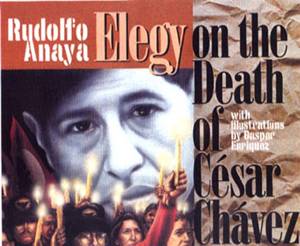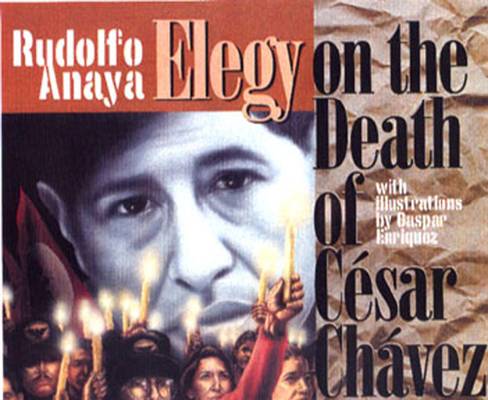
- Afhalen na 1 uur in een winkel met voorraad
- Gratis thuislevering in België vanaf € 30
- Ruim aanbod met 7 miljoen producten
- Afhalen na 1 uur in een winkel met voorraad
- Gratis thuislevering in België vanaf € 30
- Ruim aanbod met 7 miljoen producten
Zoeken
Prijzen
Omschrijving
The heroic life of labor and civil rights activist César Chavéz greatly influenced the political and creative thinking of famed Chicano novelist Rudolfo Anaya. After Chavéz' death in 1992, Anaya wrote this poem eulogizing the man and his life's work. Echoing Shelley's elegy on the death of John Keats, the poem expresses the grief of la gente, but closes by calling all peoples together to continue the non-violent struggle for freedom and justice. The book--endorsed by the César Chavéz Foundation--includes an essay by Anaya detailing the effect that Chavéz had on his own vision and a chronology of Chavéz' life. Powerful super realistic illustrations by Gaspar Enriquez bring home the significance of César Chavéz to the American cultural landscape. César Chavéz' accomplishments in fighting for the rights of farm workers, civil rights, environmental justice, and non-violence stand next to two of the 20th century's greatest leaders--Mahatma Gandhi and Dr. Martin Luther King Jr.--Carlos Santana Rudolfo Anaya (his classic novel Bless Me, Ultima has 1,000,000-plus in print) has earned international acclaim for his skillful mingling of realism, fantasy and myth while exploring the experiences of Hispanics in the American Southwest. Besides being the author of numerous novels and children's books, Mr. Anaya has been called the godfather of Chicano literature and un hijo del pueblo for his work as an activist for the literature of his people and his region. He lives in Albuquerque, New Mexico. Artist Gaspar Enriquez is nationally known for his super-realistic, airbrush paintings of young men and women from the barrios of his hometown El Paso. Using the same technique, he collaged images of César Chavéz, farm workers, police, newspaper article, fields of grapes and icons of La Raza and Aztlán to create the ambiance of the life and times of this hero.
Specificaties
Betrokkenen
- Auteur(s):
- Illustrator(s):
- Uitgeverij:
Inhoud
- Aantal bladzijden:
- 32
- Taal:
- Engels
Eigenschappen
- Productcode (EAN):
- 9780938317517
- Verschijningsdatum:
- 1/10/2000
- Uitvoering:
- Hardcover
- Formaat:
- Genaaid
- Afmetingen:
- 253 mm x 212 mm
- Gewicht:
- 335 g

Alleen bij Standaard Boekhandel
+ 47 punten op je klantenkaart van Standaard Boekhandel
Beoordelingen
We publiceren alleen reviews die voldoen aan de voorwaarden voor reviews. Bekijk onze voorwaarden voor reviews.













